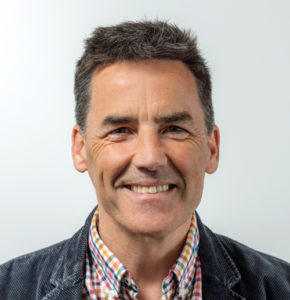VIEWS
Listen up – a new style of human rights leadership is emerging

15 March 2022
At the start of 2022, pressure was already mounting on businesses to respond radically to the increasing challenges we are facing; from the climate crisis to Covid-related supply-chain disruption, from rising global inequalities to valued talent leaving via a ‘Great Resignation’, and now the war between Russia and Ukraine is generating further challenges.
Companies are needing to innovate rapidly to adapt, whilst remaining part of the solution. But what does that look like in practice? Are they moving quickly enough? What more can they do?
This year we are publishing a series of conversations with twentyfifty team members as they reflect on the changes they are seeing in business and human rights. Our first conversation is between our Managing Partner Nick Mayhew and our Senior Consultant Zoe Croom, who discuss the challenges and opportunities ahead for business leaders.
How are ideas of leadership changing and why?
Nick: We are seeing clients having to show a different type of leadership as they grapple with a fast-changing world. While there is a place for an ‘old school’ top-down form of leadership when responding urgently to extreme threats, broadly leaders are needing to be open to a much more inclusive and empowering style.
Zoe: I’m seeing that shift within human rights and sustainability teams. As companies explore and wrestle with different levels of delegation and decentralisation, I have seen budgets and resources moved from head office teams to country level. This often creates a change in dynamics as those head office teams take on a more empowering and enquiring role, learning from the deep local knowledge and insights of their country-level colleagues.
Nick: As our clients’ needs change, so do we. To support these shifts, we are building expert teams in Africa and India who know the culture and the operating landscape and can engage with local teams to support our clients’ needs. We are also creating new partnerships with companies such as Yever in Myanmar, who specialise in advising businesses on how to operate responsibly in difficult environments.
What challenges do businesses face in implementing these changes?
Zoe: Sometimes we see internal resistance. Teams who have been able to make their own decisions or perhaps have only had to influence their line manager might struggle with getting broader buy-in. Our role is to support them as they explore new ways of navigating the system. It can take time, but experience shows us that taking people with you creates the long-term change that is needed.
A few years ago, we were engaged by an FMCG client to help address human rights risks in their supply chain. This work began in a silo, working within one team. Over time, we have helped our principal client develop new ways of working - ways that have helped her to navigate the wider system of internal stakeholders and capture the increasing levels of enthusiasm and energy across the business for the work that they do. This has enabled her to align the Executive Leadership Team around an ambitious, multi-year strategy and support the Chief Executive to make a series of bold, public commitments. This progress will have a positive impact on thousands of workers worldwide.
Nick: We know that partnering closely with individuals creates impactful change. Helping them navigate changes in leadership outlook and company strategy, creates opportunities for them and for the business. But we need to accelerate our work and the work of our clients so that we are all being more responsive to the needs of this time.
One way that we are trying to achieve this is by integrating ‘human flourishing’ as a success factor in all that we do – including our own leadership and work with clients. When human rights are respected, individuals not only survive, but have the chance to grow, thrive and flourish. In turn, we see that businesses flourish when people do.
In Zoe’s example, our client enabled her team to step up to new levels of thriving and satisfaction, whilst also receiving a promotion. Together they were able to have an even greater impact on some of the most vulnerable people in their supply chain. For us as consultants, that makes our work even more engaging and rewarding.
Closing thoughts
Zoe: I am seeing more people recognise the need for change. Whether it is senior managers or suppliers, there is growing understanding that the status quo approach to human rights and risk management is not enough. The key will be ensuring that the energy and pace of change are balanced with the depth and sensitivity needed to engage rightsholders’ voices from across the value chain into business planning and execution.
Nick: Business leaders may be finding this hard. It's easy for them to feel overwhelmed by what could become a great long list of costly demands. I think our skill lies in partnering with them as they seek internal buy in and external support for their human rights strategy.
Together, as leaders of change we are exploring new and innovative ways of thinking. At the same time, we are seeing individual business leaders transition from being overwhelmed to flourishing.
With our clients we are reimagining the future of sustainable business. This includes resilient supply chains, responsible products and services and a system that can respond to the climate crisis, while improving the lives of the most vulnerable in their value chains.
Ultimately, we are imagining a better future for us all and there is a strong business case for that.

